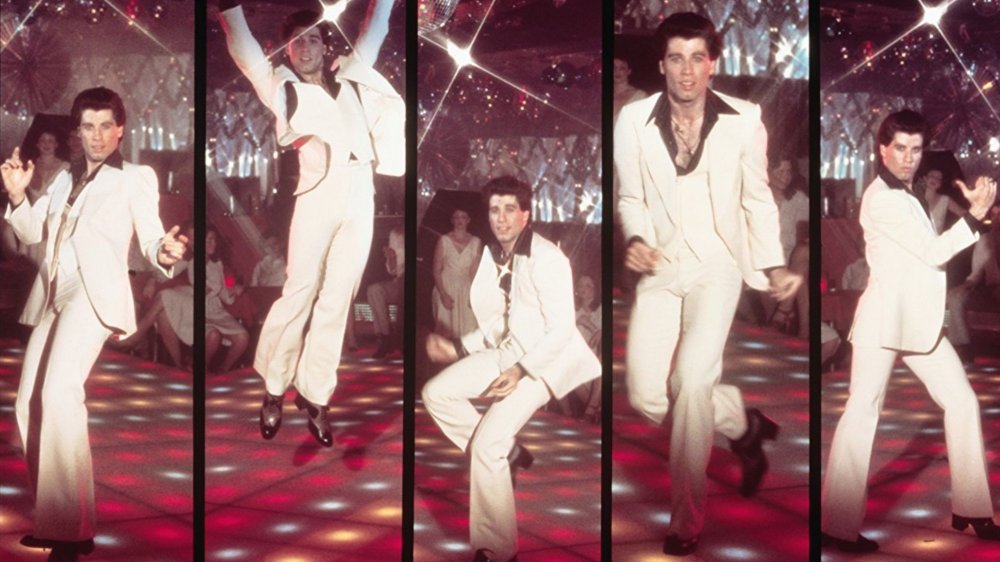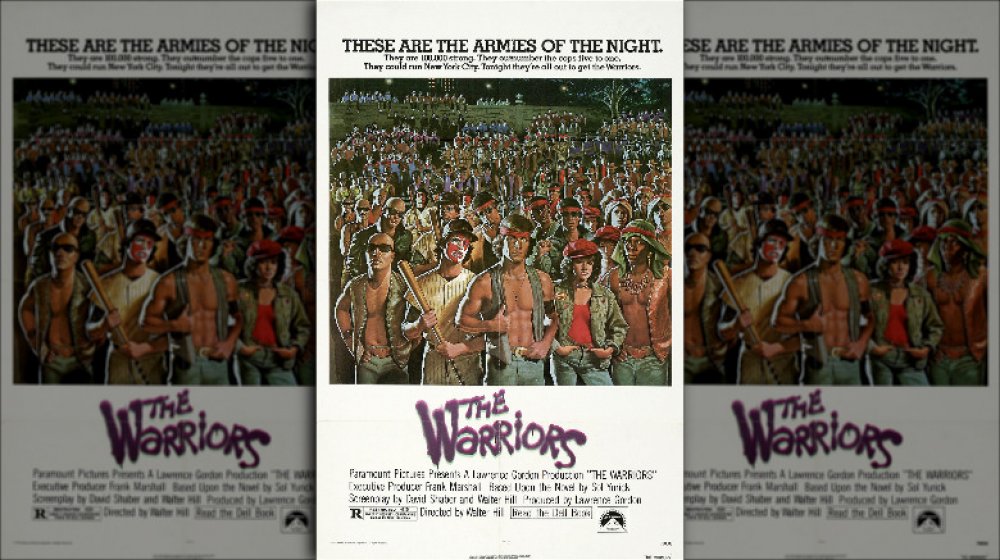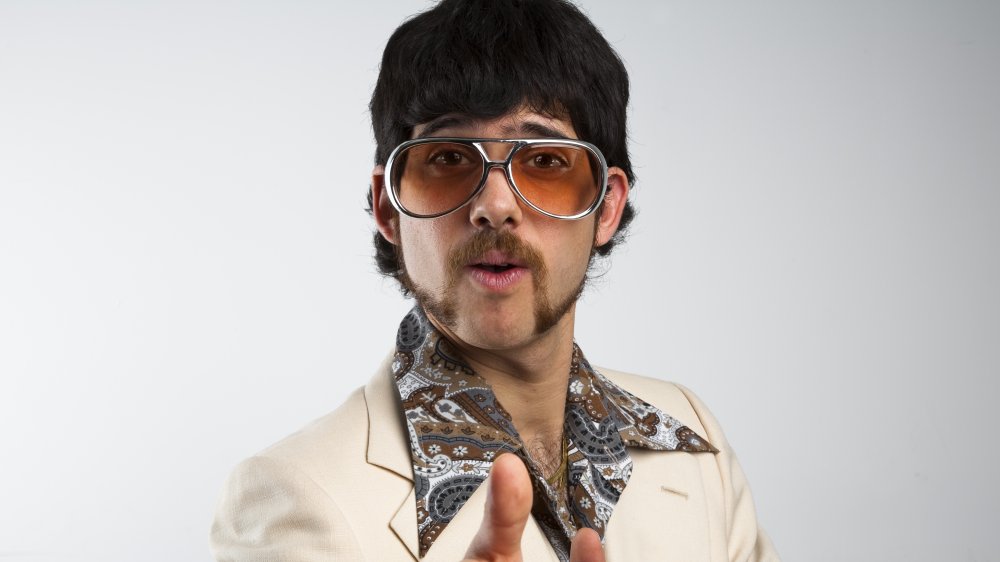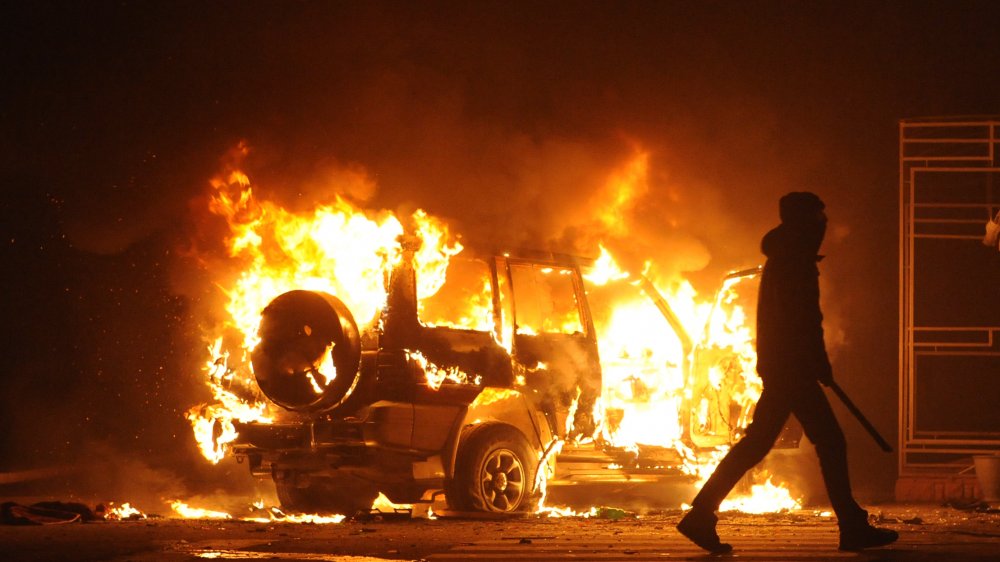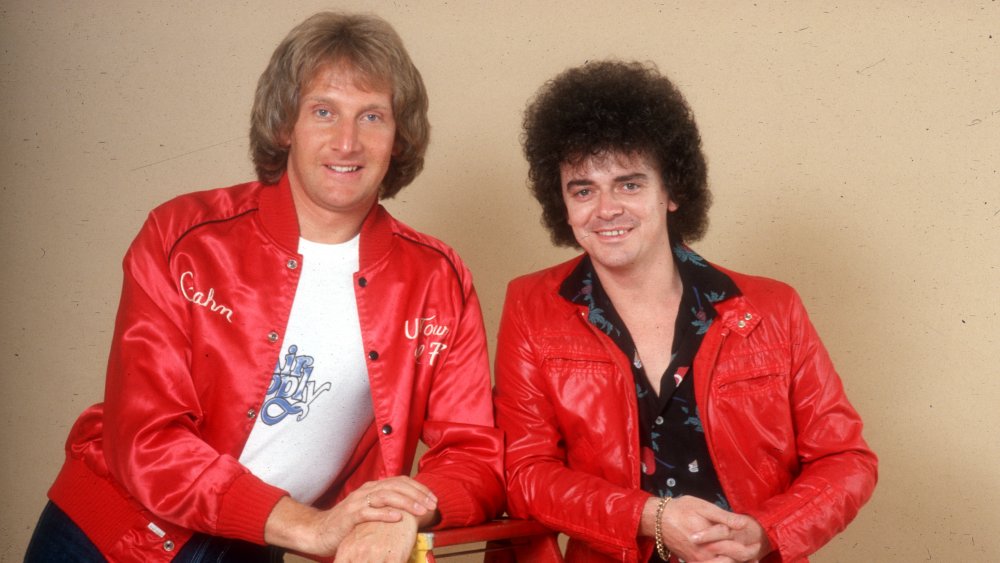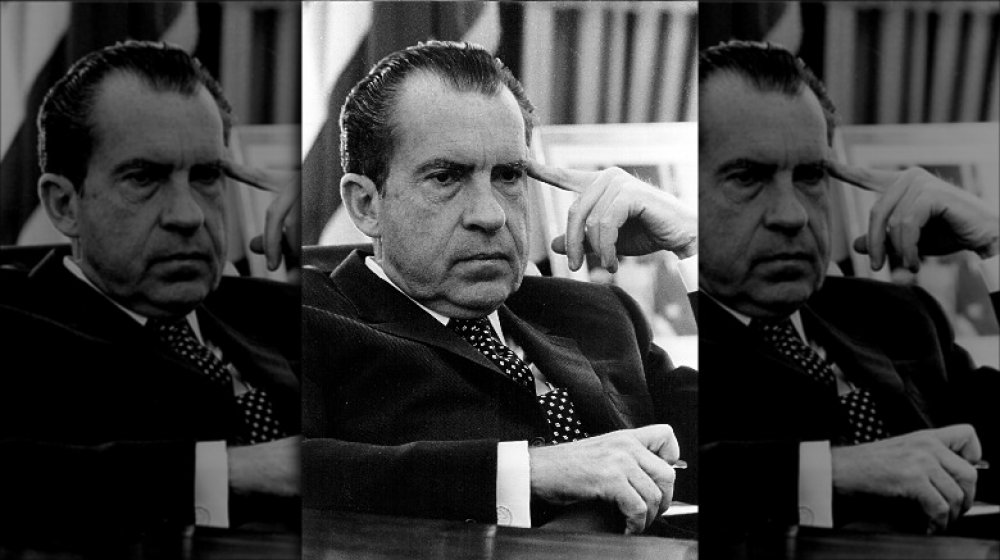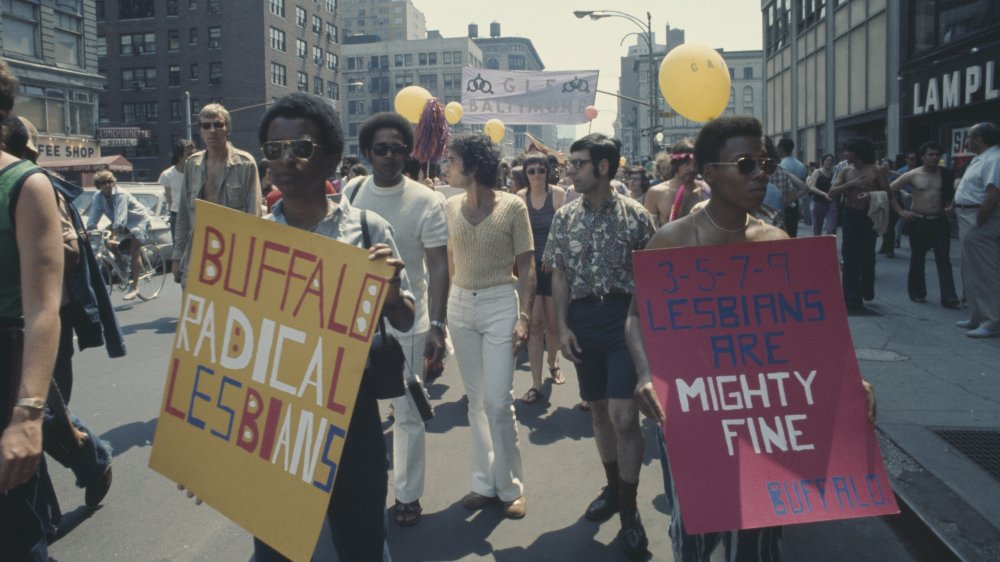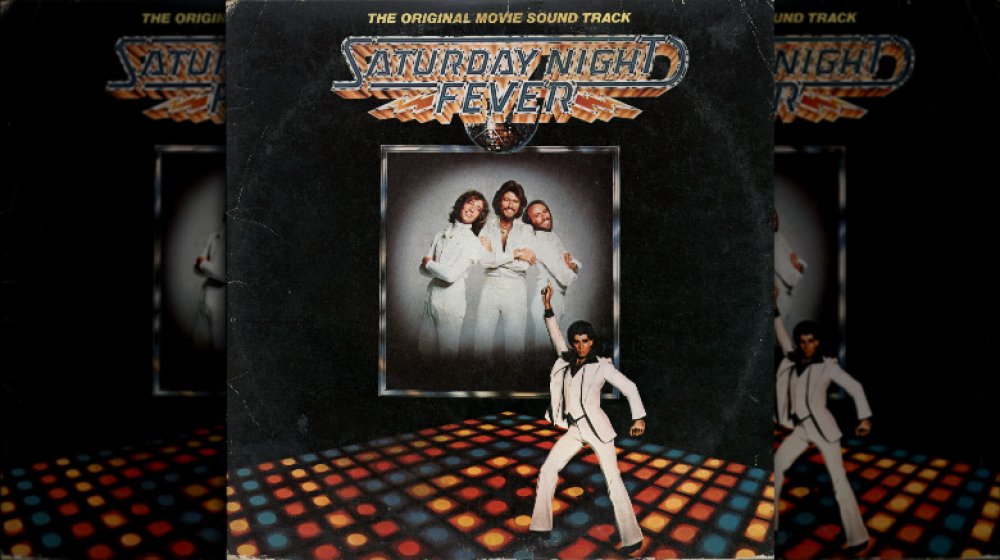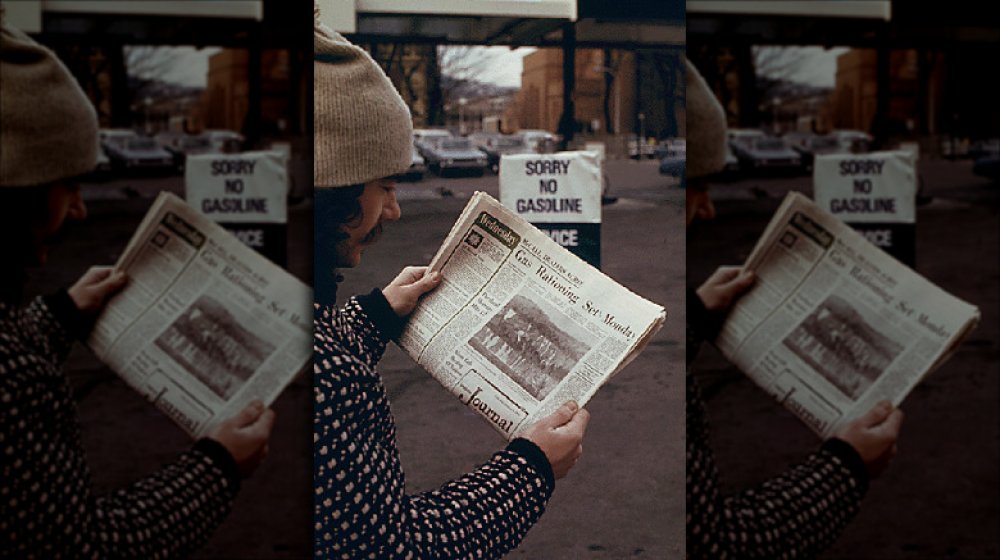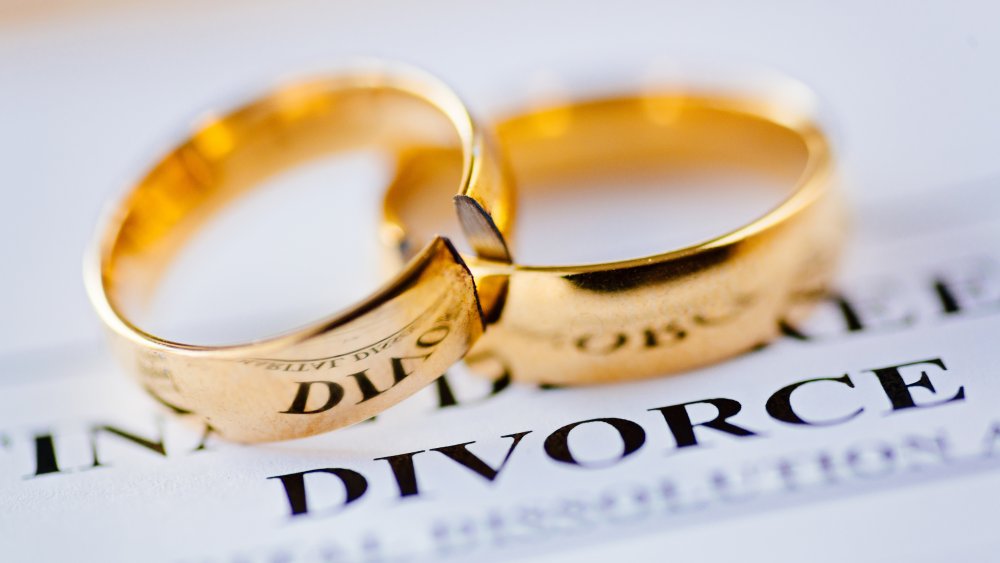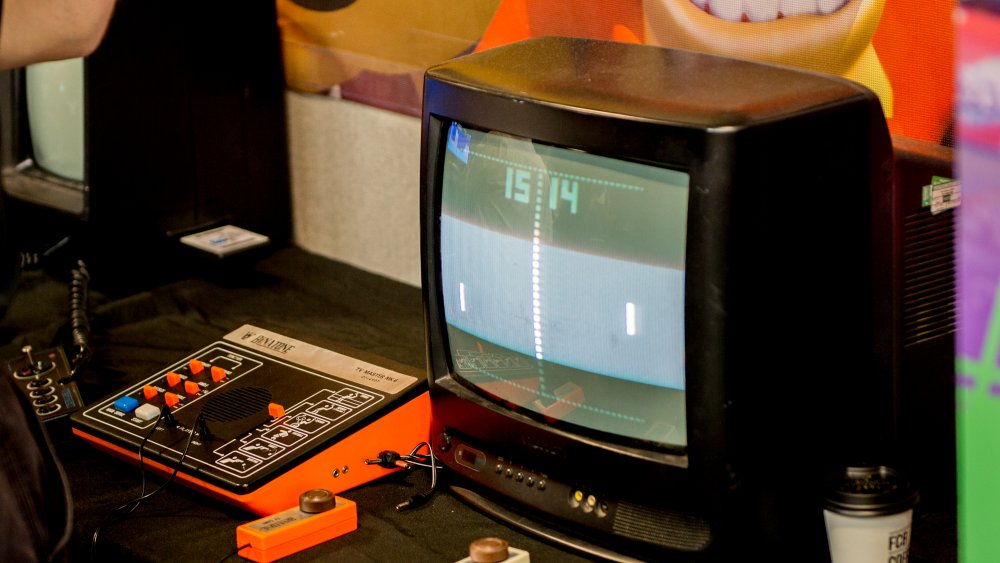Things People Get Wrong About The 1970s
Our perception of time is deeply personal—and deeply flawed. There's no scientific reason why every 10 years should be regarded as a distinct mini-era with its own feel, fashion, and musical style. That's just our brains working to organize the flood of time rushing past us. Eventually these impressions become fixed, and you get names like "The Roaring Twenties" or "The Summer of Love."
But these superficial images that define decades don't tell the whole story. Everyone thinks they know what the 1970s were all about, for example. Crumbling cities, really bad fashion and interior design, and, of course, disco—based on Saturday Night Fever alone, you might think everyone in the country was just constantly disco dancing in white leisure suits and high-heeled shoes.
The truth is messier. The 1970s, like every other decade, didn't spring fully formed on January 1st, 1970 and then suddenly shift gears into the go-go 80s on January 1st, 1980. The 1970s defined themselves slowly, emerging from the crumbling aftermath of the 1960s, and so much more happened in the decade than the rise of disco and the (unfortunate) rise of polyester fashion. Here are some of the things people get wrong about the 1970s—even people who actually lived through them.
The cities were crumbling
Watch a film set in a major city in the 1970s and you are almost guaranteed to see rubble-strewn empty lots, gangs of criminals prowling freely, and desperate police under siege. As 538 reports, part of this narrative was the idea that the "Bronx is burning," that things had gotten so bad in New York City landlords were torching their own property for the insurance money. The movie poster for the 1979 cult classic The Warriors summed up the popular concept of urban life in the 1970s: "These are the Armies of The Night. They are 100,000 strong. They outnumber the cops five to one. They could run New York City."
That's dramatic stuff. But things weren't as bad as you think. Those fires in the Bronx weren't the desperate criminal acts of slumlords—as author Joe Flood notes, they were probably due to a flawed effort to improve fire department response times. And as The New York Times notes, while crime was certainly high in the 1970s in cities like New York, there was also a thriving underground art scene and a lack of socioeconomic barriers that lent the city a sense of freedom and excitement that can't be matched by today's manicured and corporate-dominated cities.
Cities in the 1970s had their problems, true—but they were never the gang-dominated wastelands you see in movies.
The 1960s stopped on a dime
One of the most egregious falsehoods about the 1970s is that it was a 10-year block of time that was instantly distinct from the 1960s and the 1980s. The idea that in December of 1969 hippies were still strumming guitars and singing about love, and then a month later a bunch of punks showed up and kicked off the new decade is kind of silly.
As Lithub notes, many historians believe the political and social trends of the 1960s continued well into the 1970s, without interruption. Many of the things we associate with the 1960s continued well into the next decade, after all—The Vietnam War didn't end until 1975, and History reminds us that protest songs like John Lennon's Imagine or Marvin Gaye's What's Going On? actually came out in 1971. The International Center on Nonviolent Conflict officially lists 1973 as the ending point for the antiwar protests that we think defined the 1960s.
Bands that we think of as defining the 1970s got their start in the 1960s, too. Led Zeppelin was the biggest rock band in the world in the '70s—but released their first album (to huge success) in 1969. And The Washington Post makes the case that even the Hippies, the most iconic symbol of the 1960s, actually hit their peak of influence and popularity in the 1970s.
The worst-looking decade ever
Jokes about the style of the 1970s abound. The words "shag carpet" evoke a specific idea of what the decade looked like. The 1970s are widely remembered as the decade where taste went to die, a time when the crisp, classic fashions of the 1950s and the far-out but decidedly cool fashions of the 1960s were replaced by out of control sideburns, wide-lapel jackets, and lots of open shirts and gold chains. Similarly, as Architectural Digest notes, interior design was marred by avocado appliances, crochet and macrame everywhere, and vinyl tablecloths.
Sure, it's funny, but it's inaccurate. Every decade has its style mistakes, it's just that they usually aren't defined by them. The fact is, as Women and Home magazine reports, the 1970s are considered by many to have been one of the greatest decades ever for fashion and design. And as The New York Times notes, many design and style trends dating back to the 1970s are not only coming back in a big way but are influencing new trends.
In fact, as the Times points out, one reason the 1970s were so wild in terms of style was a distinct shift towards self-expression made possible by the movements of the previous decade. People were finally given permission to make their homes and their wardrobes personal instead of conforming, and the result was a burst of creativity. Not all of it was classic, of course—but a lot of it was.
It was a most violent decade
When people think of the 1970s, they often think of a surge in violent crime. Between gangs roaming the streets of our cities, serial killers like Son of Sam or the Zodiac Killer preying on innocent people, and subway cars covered in graffiti and targeted by muggers, the 1970s are usually depicted as an entire decade of folks getting mugged and murdered.
The fact is, these trends began long before the 1970s. As The Brennan Center for Justice notes, violent crime increased 60 percent nationwide during the 1970s—but that followed an increase of 126 percent in the 1960s. And yet we think of the 1960s as the decade of peace and love.
And as Time Magazine notes, violent crime has actually been worse in more recent years. In 2013, there were 1.16 million violent crimes in the United States. But that was cause for celebration, because it was the lowest number since 1978—when there were just 1.09 million violent crimes. In other words, we're celebrating having as much crime as we did in the supposedly hellish 1970s.
Of course, we're kind of weird when it comes to crime rates. As The Brennan Center points out, crime has been dropping steadily for years—but people consistently believe otherwise. Which just goes to show we can't trust ourselves when it comes to judging the relative safety of a decade.
The 1970s were creatively boring
The logline on 20th century cultural history is that the 1950s were straitlaced and marked by conformity, the 1960s were explosively creative as the younger generation rebelled against that conformity, and the 1970s were marked by excess and a more generic and less creative energy.
That's really not true, though. In just about every artistic category, the 1970s was a vibrant, happening time—and in some ways was even more creative and exciting than the 1960s. Pitchfork makes the argument that the 1970s was actually pop music's Golden Age, noting that music critic David Hepworth believes the most influential rock albums of all time were released in 1971. The 1970s was also the decade that punk, new wave, and disco rose to prominence, a frenetic decade of experimentation, rebellion, and reinvention in music.
The Guardian also notes that the 1970s was in many ways the Golden Age of Hollywood. After decades of being restrained by morality codes and the studio system, the 1970s saw the emergence of legendary filmmakers like Martin Scorsese and Steven Spielberg, not to mention the release of some of the most iconic films of all time. And it was also the decade when artists like Jean-Michel Basquiat, Jeff Koons, and Keith Haring began developing their work. The 1970s were kind of awesome, is the point.
It was the 'Me' decade
The 1970s is often seen as a decade when the focus shifted inward. After a decade of trying to change the world through collective action, people focused on themselves. They went to therapy and leaned into self-expression in their personal style. This was codified by author Tom Wolfe in 1976 with his article "The 'Me' Decade and the Third Great Awakening."
This misconception is due to a typical blind spot when people look back to the past: The assumption that everyone was having exactly the same experience everywhere. Just as not everyone was a hippie in the 1960s, not everyone in the 1970s became instantly obsessed with their own happiness and interior world.
This blind spot is still in operation. As The Atlantic notes, the Millennial generation is often maligned as the most narcissistic generation of all time. The similarity to the way younger generations in the 1970s were mocked as self-absorbed is striking, and underscores the reality: Every generation is self-absorbed to some extent. What started to change in the 1970s is our power to express that self-absorption. The 1970s weren't any more or less of a "Me" decade than the 2020s will no doubt turn out to be.
Watergate ruined the Republicans
Watergate is such a powerful symbol of modern political corruption we still amend the word "-gate" to new scandals even though it makes no sense (it wasn't a water scandal, Watergate is the name of the hotel involved). Watergate was so powerfully negative it actually forced President Richard Nixon to resign in 1974—the first president to do so. He made the decision in order to avoid an impeachment—and possibly to ensure that his Vice President, Gerald Ford, could pardon him once Ford assumed the presidency.
You might assume this ruined the Republican party. You would be wrong. Yes, the Republicans suffered some electoral setbacks. In the 1974 elections, the Democrats gained four Senate seats to hold a huge 60-38 majority, and 49 seats in the House. In 1976, the Democrats won the White House with Jimmy Carter.
But as Politico reports, ultimately Watergate transformed the Republican Party into the much more conservative version that stormed back into power under Ronald Reagan in 1980—and which has dominated our politics ever since. Moderate Republicans who voted in committee to approve articles of impeachment were maligned as not sufficiently Republican, and the party reinvented itself as much more conservative. As NPR notes, far from ruining the party, there's a clear link between Watergate and the resurgent GOP in the late 1970s.
All the social change stopped
Everyone knows the 1960s were all about protests and movements. Young people wanted to stop war, to end racism, and address poverty. People were turned on and tuned in and ready to change the world. Then the 1970s came along and everyone just stopped caring about all that stuff. After all, it was the so-called Me Decade, so everyone was far too busy getting to know themselves to care much about anyone else.
That's all hogwash, of course. The 1970s continued the trend of a general push to change the world for the better. As The Atlantic notes, although the Stonewall Riots that sparked the Gay Rights Movement in this country happened in 1969, it gained national prominence in the 1970s as LGBTQ people around the country organized and fought for their rights as human beings and citizens. And History reminds us that the 1970s was also the decade when we came close to actually passing the Equal Right Amendment and codifying women's equality in the country's Constitution.
In other words, the 1970s was far from a do-nothing decade when it came to social issues. While the events of the 1960s get all the press and popular memory, the 1970s were just as exciting a time in this country.
Disco was a fad
If you start talking about the 1970s, someone will bring up disco. The image of John Travolta in his white leisure suit dancing on a multicolored dance floor is what people think of when they think of disco in the 1970s, but that's a pretty superficial way of looking at an important musical form. While the huge popularity of disco only lasted a few years in the 1970s, its roots extend back to the early 1960s—and it's still going strong today.
Disco began in the 1960s at dance clubs known as discotheques, which is where the dance-focused musical style got its name. As the Encyclopedia Britannica notes, disco was initially a very underground genre, embraced by the LGBTQ community. Homosexuals often encountered prejudice at clubs and bars at the time, and found community in underground, unofficial clubs where disco was the music of choice.
When disco hit the mainstream later in the decade, it inspired a huge backlash. As Vice notes, the hatred of disco on the part of rock fans may have had more to do with its connection to gay culture than its musical quality. Luckily, as Rolling Stone reports, those efforts failed—far from a 1970s fad, disco continues to be a vibrant musical genre that influences modern artists like Dua Lipa and The Weeknd.
The gas lines were long
It's one of the most common images of the 1970s: People lined up for miles outside gas stations, waiting to fuel up. As History explains, the United States had reduced its own oil and gas production to very low levels, leaving us reliant on the oil being produced by other nations, most notably the members of the Organization of Arab Petroleum Exporting Countries (OAPEC). The member countries had never acknowledged the legitimacy of Israel, and when President Richard Nixon showed his support of Israel during the Yom Kippur War in 1973, OAPEC announced an embargo on oil production.
Prices surged, gasoline shortages abounded, and a country that had grown very used to driving everywhere was suddenly constrained. Those lines of people waiting for gas became a symbol of a country in decline—and a symbol of the decade itself.
But the embargo actually ended just six months later, in March 1974. While prices remained high for a while, the crisis was largely over by 1975. There was a lasting impact in a flurry of legislation designed to prevent the crisis from ever happening again—including the creation of the Department of Energy in 1977—but it wasn't like everyone spent 10 years waiting in long lines because of a gas shortage.
Divorce destroyed the family
The decade of the 1970s tends to be associated with divorce and the often-repeated "fact" that 50 percent of all marriages end that way. It sure seemed like every single movie and TV show from that decade featured a divorced couple. And it's true that the divorce rate climbed to a record high in the 1970s; according to Insider, the divorce rate hit 5.3 per 1,000 Americans in 1979. It's easy to see why the 1970s has been tagged as the "decade of divorce."
But the truth is there are simple reasons why the divorce rate rose in the 1970s, and it had nothing to do with crumbling values or the destruction of the traditional family. As National Affairs notes, California passed the first "no fault" divorce law in 1969, and most of the country followed suit shortly after. This gave many women the opportunity to leave abusive or unsatisfactory marriages easily for the first time in history. As The New York Times notes, this combined with the burgeoning feminist movement to empower women—and people in general—to seek love and happiness instead of stability.
The rise in divorces was a corrective, in other words, not a rejection of traditional marriage or family. The New York Times also notes that the divorce rate has fallen steadily since—and the old saying about half of all marriages ending up in court has never been true.
The technology was primitive
In the 21st century, it's easy to feel like we're living in the future. Our devices are artificially intelligent, our gadgets talk to us, and our entertainments are eye-poppingly realistic. You might pity the poor folks who lived through the 1970s, which was obviously a more primitive time. You might even wonder how in the world people entertained themselves in such a technologically backward period.
It actually wasn't all that different, in many ways. Sure, 1970s folks didn't have iPhones to play with—but as AARP notes, the first cell phone call was made in 1973. And people living 50 years ago didn't have supercomputers in their pockets or on their wrists, but as The Atlantic notes the first personal computers arrived in the 1970s, and were pretty useful even if they would be considered laughable by today's standards. And video games, which History notes have a history stretching back to the 1950s, were a sensation in the 1970s. The first video game console, in fact, came out in 1972. And no, there was no Netflix—but 1970s folk did have cable TV.
In fact, almost everything we think of as modern-day technology existed in some form in the 1970s. Sure, it was usually bigger and slower, but it was there.
